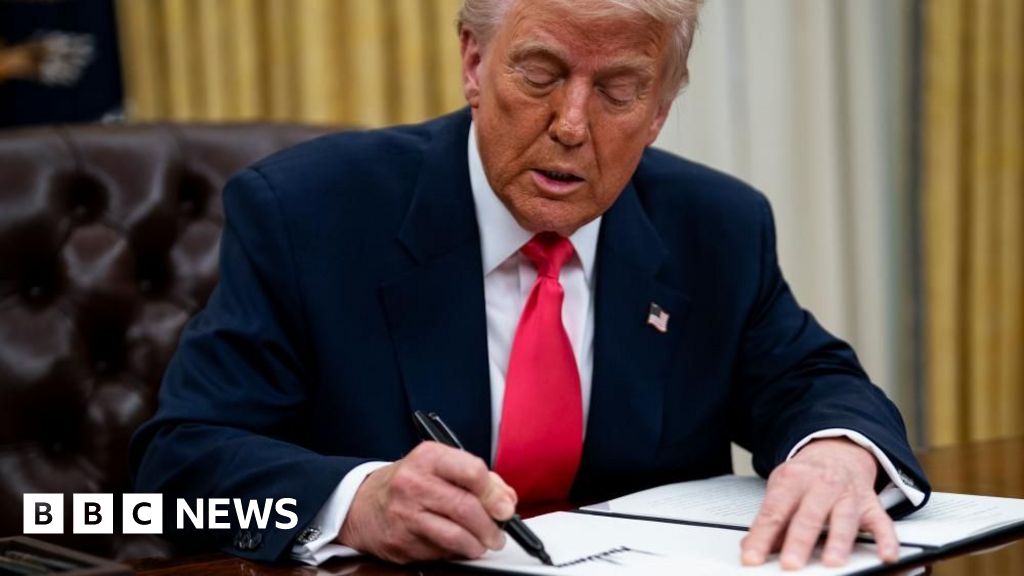President Trump Signs Order to Dismantle Education Department
The move to dismantle the Department of Education has sparked intense debate, with proponents arguing that it will return control to states and local communities, while critics warn that it will harm vulnerable students and undermine the federal government's role in ensuring equal access to education.

President Trump has signed an executive order to dismantle the US Department of Education, a move that would return the money it controls to individual states and fulfill a long-sought goal of some conservatives, despite requiring congressional approval to fully implement.
The Department of Education, created in 1979, has spent over $3 trillion since its inception, with the White House claiming that it has little to show for it. The department oversees billions of dollars in federal funds for schools and universities, as well as civil rights protections and the federal student loan program. Trump's plan raises questions about the future of these functions, with critics warning that it could harm millions of low-income families and students.
The executive order directs Education Secretary Linda McMahon to begin the process of shutting down the department and returning authority over education to states and local communities. Trump contends that federal oversight has failed students, teachers, and parents, and that education is best managed at the state and local level. However, the move has been met with a Democratic backlash, with lawmakers saying it would make it harder for students to get financial aid and jeopardize funding for schools.
The Department of Education's key responsibilities include managing $1.5 trillion in student loan debt, administering the Pell Grant program, and enforcing anti-discrimination laws in schools. Trump's plan cannot be implemented without congressional approval, which seems unlikely given the current Senate majority. The administration plans to pursue an effort to formally close the agency through Congress, but the move is widely seen as an attempt to circumvent the need for congressional approval.
The fate of the US Department of Education remains uncertain, with the executive order marking the beginning of a potentially long and contentious process. As the debate unfolds, the impact on the American education system and the millions of students and families who rely on its programs will be closely watched.